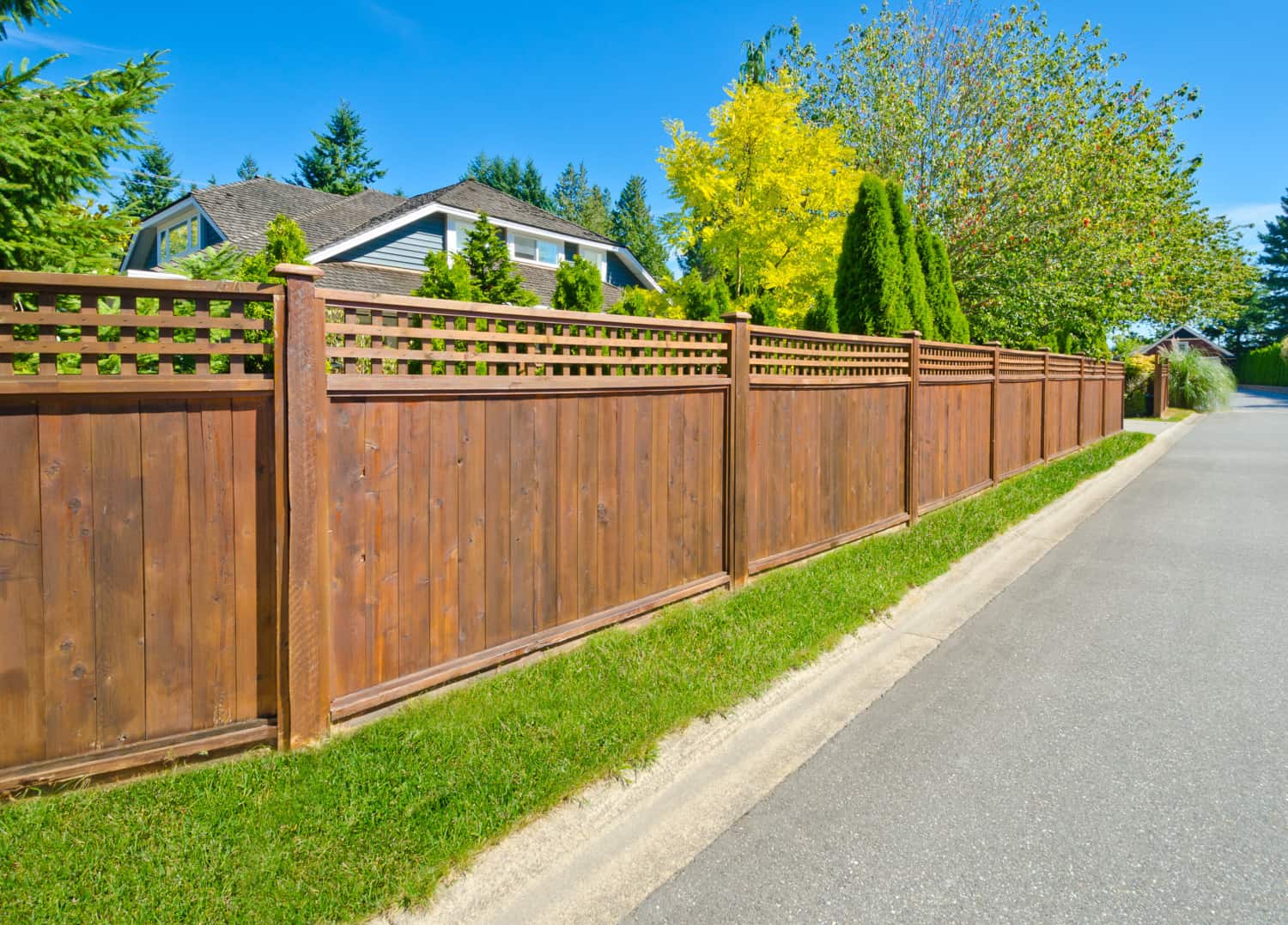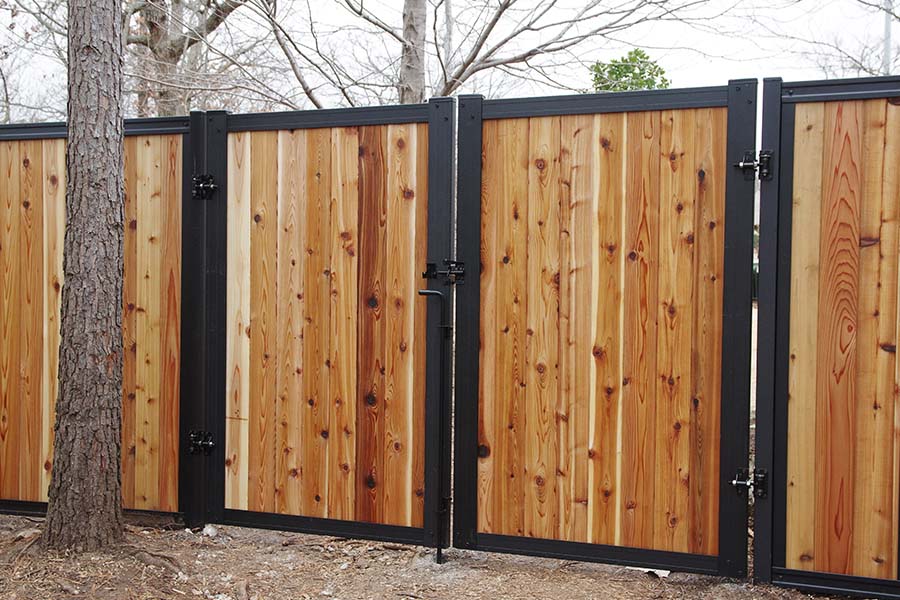All Categories
Featured

When it comes to picking the best fence material for resilience, wrought iron stands out as one of the most reputable and long-lasting alternatives available. Let's take a closer look at wrought iron secure fencing and exactly how it stacks up against alternatives like aluminum, plastic, and timber.
Toughness and Longevity of Wrought Iron Secure Fencing. Unlike lots of various other secure fencing choices, wrought iron can sustain harsh environmental problems, including severe warm, hefty rain, and also strong winds. Because it is a steel, functioned iron is not susceptible to the wear and tear that timber fencings often experience, such as rotting, warping, or insect invasions.
Durability: Wrought iron fencings are incredibly difficult and can withstand impacts and other types of physical tension that may damage other products. When properly maintained, they can last for 50 years or more, making them an investment that will offer long-term value.
Wrought Iron vs. Wood Secure fencing. Wooden fencings, while standard and aesthetically pleasing, usually require more maintenance and have a much shorter life-span contrasted to functioned iron. Timber is susceptible to rot, termites, and weathering with time, all of which can jeopardize its structural integrity. On top of that, timber fences might need to be replaced or repaired every 10 to two decades, depending on the climate and the sort of timber utilized.
Upkeep: While wood fences require to be consistently treated with paints, sealants, or spots to maintain their appearance and durability, wrought iron fences generally require a lot less maintenance. They might require periodic cleansing or painting to avoid rust, particularly in damp or coastal locations, yet they will not experience the exact same kinds of degradation as timber.
Longevity: While a well-maintained wood fencing might last 20 to 30 years, wrought iron can exceed that lifespan by a number of decades, making it a more long lasting option over time.
Wrought Iron vs. Vinyl Secure fencing. Vinyl fencing has ended up being a prominent choice to wood due to its reduced upkeep and resistance to the components. Unlike timber, vinyl doesn't rot or warp, and it does not need to be painted or dealt with.
Durability: While plastic is relatively long lasting and immune to rot and fading, it still can't match the lasting stamina and toughness of wrought iron. A plastic fence could last around 20 to 30 years, depending on environmental elements, but it does not have the architectural honesty that wrought iron offers.
Upkeep: Vinyl requires marginal upkeep contrasted to timber, however it can still fade over time, specifically in areas with extreme sun direct exposure. Wrought iron may require periodic corrosion avoidance therapies yet normally needs less interventions than vinyl.
Wrought Iron vs. Aluminum Secure Fencing. Aluminum is an additional steel alternative to wrought iron, and while it shares several of the durability traits of functioned iron, it is typically less solid and tough. Aluminum is extra resistant and lightweight to corrosion and rust, making it a popular selection for low-maintenance fence. It's not as strong as wrought iron and might be more susceptible to flexing or nicking under pressure.

Durability: Wrought iron is dramatically stronger and a lot more resilient than light weight aluminum. While light weight aluminum fences can last for numerous years, they might not stand up too in high-traffic or high-impact locations. In contrast, wrought iron is a lot extra resistant to physical damages and can much better withstand stress and force.
Upkeep: Both functioned iron and light weight aluminum fencings call for some maintenance, mostly to stop corrosion. Aluminum is much less most likely to rust than wrought iron, making it a much more low-maintenance choice in areas with high moisture or coastal salt direct exposure.
Last Ideas: Wrought Iron's Toughness Benefit. Wrought iron attracts attention as one of one of the most sturdy fencing materials offered, surpassing timber, vinyl, and light weight aluminum in terms of strength, durability, and total performance. While it does call for periodic maintenance, especially to stop rust, its ability to withstand extreme weather conditions, physical stress, and the test of time makes it an exceptional financial investment for services and property owners searching for a lasting, safe fencing option.
For those who focus on toughness and durability above all else, wrought iron is an unbeatable option. Whether you're protecting a residential building, enhancing the look of your backyard, or providing protection for a commercial site, wrought iron fencing will provide decades of durability and aesthetic appeal that few various other materials can match.
Latest Posts
Transform Your Home with Sturdy Hardwood Flooring from Carpet Interiors Floor & Home
Published Apr 19, 25
1 min read
A Waterside Oyster Experience
Published Apr 19, 25
1 min read
Full Circle Strategic Marketing - Skyrocket Sales with Performance-Based Marketing
Published Apr 19, 25
2 min read
More
Latest Posts
Transform Your Home with Sturdy Hardwood Flooring from Carpet Interiors Floor & Home
Published Apr 19, 25
1 min read
A Waterside Oyster Experience
Published Apr 19, 25
1 min read
Full Circle Strategic Marketing - Skyrocket Sales with Performance-Based Marketing
Published Apr 19, 25
2 min read